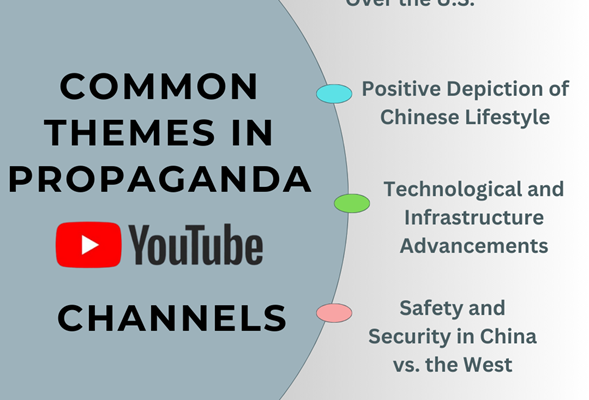Vietnam defense minister Phan Van Giang visits US to boost ties
Updated Sept. 10, 2024, 07:03 a.m. ET. Vietnam’s minister of national defense Phan Van Giang is in the U.S. to bolster bilateral security cooperation amid rising tensions in the South China Sea. Vietnam is among the states that claim at least part of the waterway and it has been seeking to strengthen its maritime capabilities, including with purchases of defense technologies and equipment. Giang’s trip is his first official visit to the U.S. since he took office in April 2021. Hanoi and Washington upgraded their relations to the top tier of comprehensive strategic partnership in September 2023, during a visit by U.S. President Joe Biden to Vietnam. Yet their security and defense cooperation, deemed highly sensitive as the two countries fought each other in the past, remains limited and has focused mainly on the legacies of the Vietnam War, such as searching for American soldiers missing in action and decontamination of areas affected by toxic chemicals. U.S. Defense Secretary Lloyd Austin (R) welcomes Vietnamese Defense Minister Gen. Phan Van Giang (L) to the Pentagon in Washington, Sept. 9, 2024. (AP Photo/Kevin Wolf) Gen. Giang and his counterpart, Defense Secretary Lloyd Austin, had a meeting on Monday at the Pentagon, during which they “underscored the importance of working together to overcome war legacies,” according to a summary provided by the Department of Defense. They also “discussed opportunities to deepen defense cooperation, including on defense trade, industrial base resilience, and information sharing,” the department said without providing further details. Shopping list According to the U.S. government, from 2016 to 2021, it authorized US$29.8 million – a relatively small amount – in defense articles to Vietnam via direct commercial sales. The Defense Department also has more than $118 million in active foreign military sales to Vietnam, mainly of trainer aircraft. This budget would be greatly expanded if Vietnam decided to procure more U.S. equipment, analysts say. “Defense equipment suppliers and subcontractors can expect increased demand for naval combatants, aerial defense, intelligence systems, and surveillance and reconnaissance equipment,” the U.S. government’s International Trade Administration said in its commercial guide. “Maritime security and air defense is where Vietnam has the biggest need, but I would expect Vietnam would start with maritime security first, as this dovetails with U.S. expectations,” said Alexander Vuving, a professor at the Daniel K. Inouye Asia-Pacific Center for Security Studies in Hawaii “But there is no clear-cut distinction between maritime security and air defense. For example, aircraft, radars and missiles are essential in both,” Vuving told Radio Free Asia. RELATED STORIES Closer Vietnam-US ties not based on Beijing issues, says conference Vietnam hosts its first international defense expo Vietnam mulls law that may open market to foreign arms firms US Defense Secretary Austin Meets in Hanoi With Vietnamese Officials The United States and Vietnam signed in 2015 a so-called Joint Vision Statement on defense relations – their most important document setting out defense cooperation, in which maritime security was highlighted. The U.S. has given the Vietnam coast guard two Hamilton-class cutters – a third one is scheduled to be delivered in the near future – as well as tactical drones and patrol boats. Veteran regional military watcher Mike Yeo said that coast guard cutters “would be an obvious item” on Hanoi’s shopping list. “But another possibility is the approval for transfer of subsystems to Vietnam such as jet engines for Korean FA-50 light attack planes should Vietnam decide to buy them,” Yeo said. “Vietnam hasn’t bought the FA-50 yet but it seems like a logical choice going forward and as the engine used is a U.S. design an export clearance will be needed for any buyers,” he added. Not targeting China The United States lifted its lethal arms embargo on Vietnam in 2016, enabling it to procure U.S. equipment but “it will depend mainly on Vietnam’s needs and the prices,” said Vuving. Vietnam’s defense budget has not been made public, but could be about $7.8 billion in 2024, according to GlobalData. It remains dependent on cheaper Russian arms and equipment but there are efforts to diversify supplies with a major defense expo in Hanoi in 2022 and a second one slated for this December. Before the meeting with Gen. Giang on Monday, Secretary Austin said his department had accepted an invitation to the event that is due to be attended by defense suppliers from dozens of countries including Russia, India, the United Kingdom, Israel and France. Vietnam’s big neighbor China did not attend the first Vietnam Defense Expo and has yet to confirm its attendance at the second. A visitor looks into the U.S. Excelitas’ Merlin-LR Image Intensifier weapon-mounted sight during a defense expo in Hanoi on October 2, 2019. (Nhac Nguyen/AFP) Hanoi is always cautious not to antagonize Beijing while deepening ties with Washington, insisting that any effort to modernize its military is purely for self-defense and not aimed at any country. “China will watch Vietnam-U.S. relations very closely,” said Vuving. “Beijing is unhappy with any progress in U.S.-Vietnam relations.” Edited by Mike Firn. Updated to clarify Phan Van Giang’s schedule. We are : Investigative Journalism Reportika Investigative Reports Daily Reports Interviews Surveys Reportika


